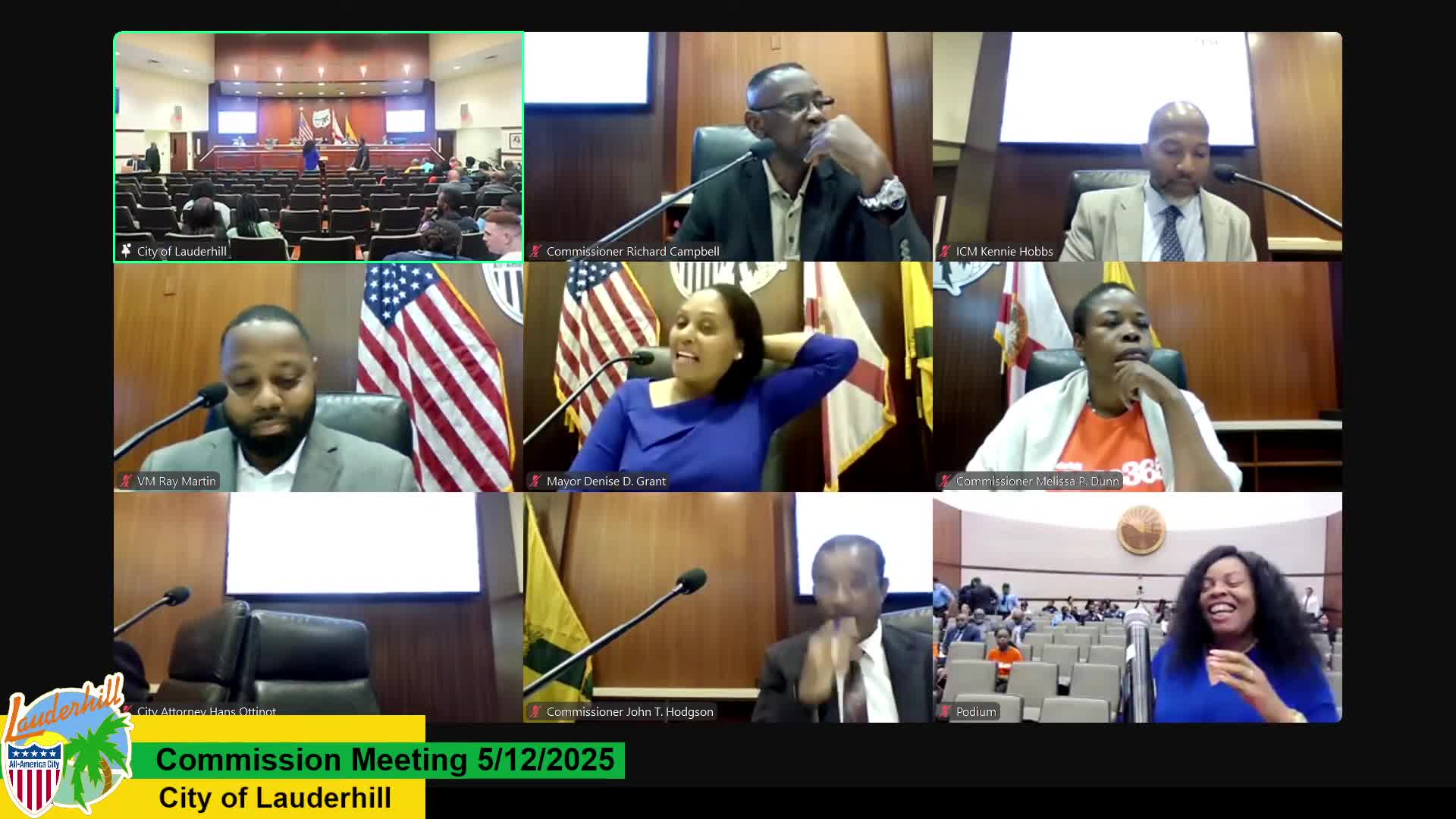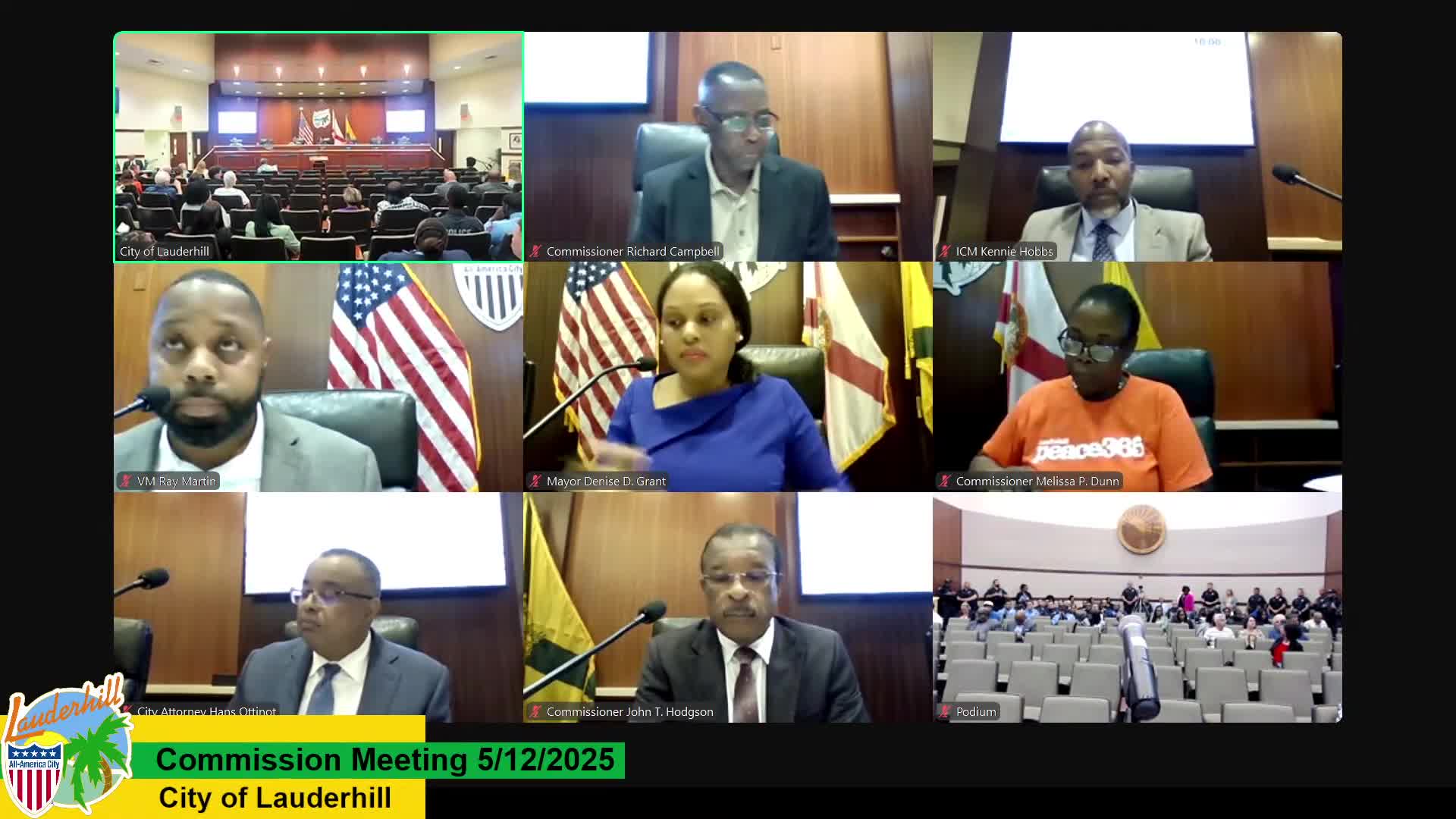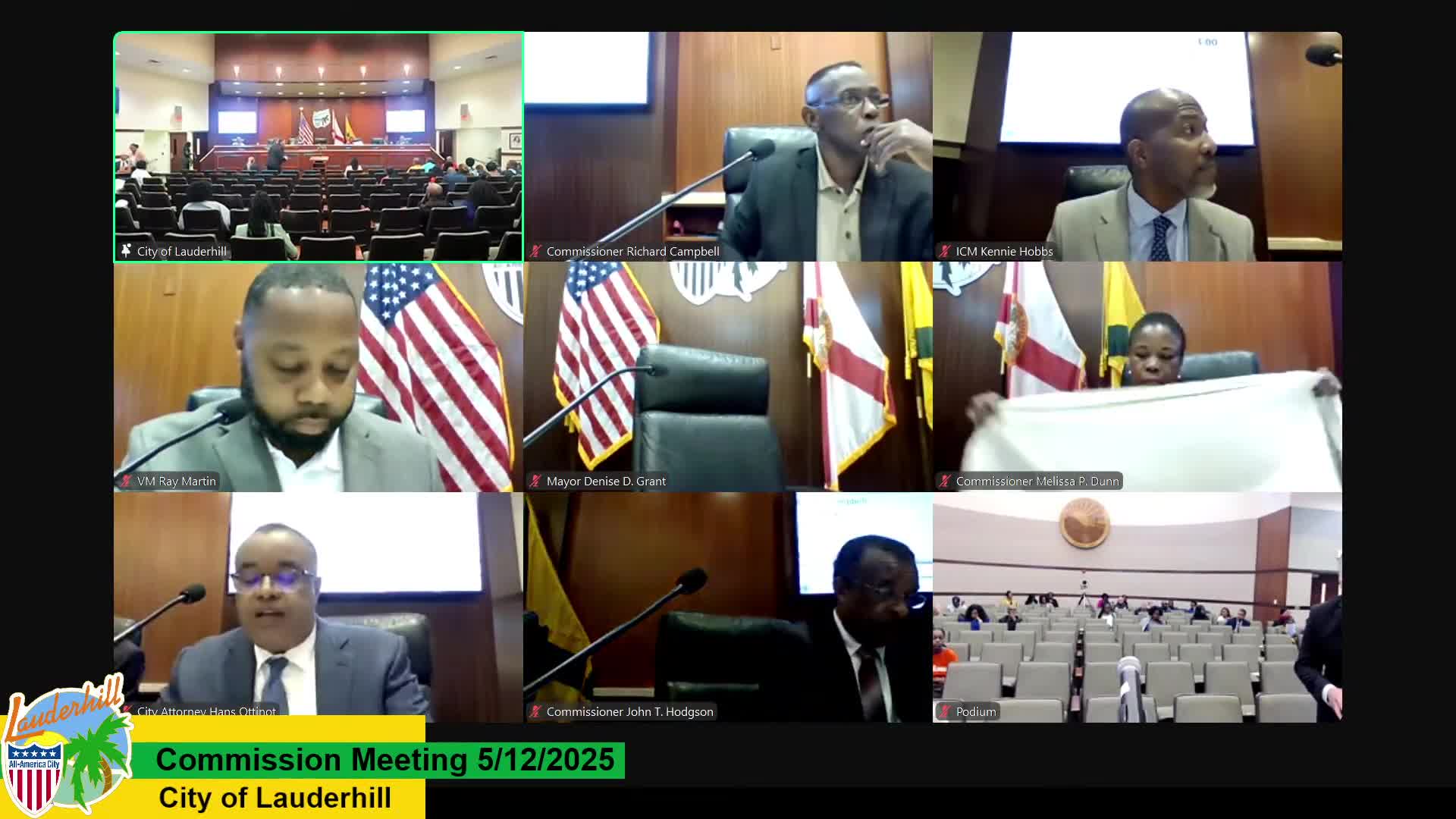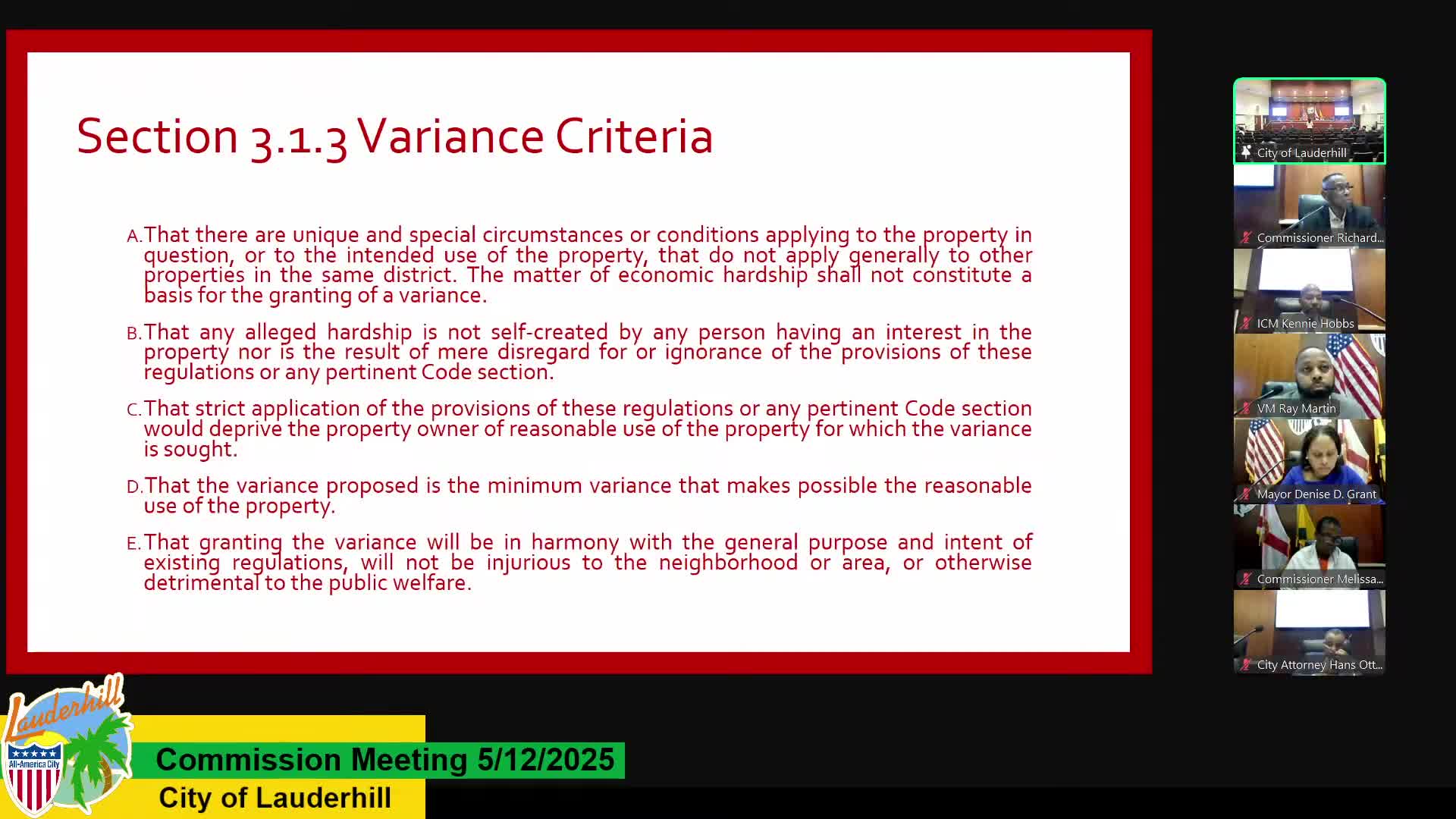Article not found
This article is no longer available. But don't worry—we've gathered other articles that discuss the same topic.

Lauderhill proclaims June Peace Month and approves Peace 365 school clubs with up to $10,000 in commissioner funding

Lauderhill honors Officer Thomas Yops and nurse who aided him after vehicle attack

Votes at a glance: Lauderhill City Commission, May 12, 2025

Commission accepts $15,000 NLC economic initiative grant and directs city manager to manage grants; memo places hold on LHPP‑linked spending pending forensic‑f

